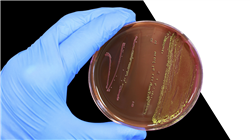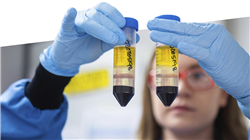University certificate
The world's largest faculty of pharmacy”
Introduction to the Program
Thanks to this 100% online program, you will carry out disease prevention programs and improve people's general health"

Equitable access to essential medicines is a persistent challenge in global public health. In fact, the World Health Organization estimates that approximately 2 billion people lack basic health products, contributing to a significant burden of preventable morbidity and mortality. Faced with this situation, pharmacists play a key role in addressing this problem through effective resource management and the implementation of public health policies. Therefore, these professionals need to have a holistic knowledge of policy evaluation in this area.
In this context, TECH is developing a complete and innovative program in Public Health Management . Designed by specialists in this field, the academic itinerary will analyze current Public Health policies taking into account environmental challenges. At the same time, the syllabus will delve into Communication in Crisis Situations, which will enable graduates to provide clear and rigorous information during these circumstances. In line with this, the didactic materials will provide pharmacists with advanced tools to evaluate health programs. In this way, graduates will gain competencies to provide quality counseling to patients on topics such as the appropriate use of medication, disease prevention and maintaining a healthy lifestyle.
It should be noted that the methodology of this program emphasizes its innovative nature. TECH will offer a 100% online educational environment, where the only requirement is that pharmacists have an electronic device with Internet access to expand their knowledge and acquire new competencies that will enrich their clinical practice. In addition, this program will employ the revolutionary Relearning methodology, based on the repetition of key concepts to fix knowledge and facilitate learning. In this way, the combination of flexibility and a robust pedagogical approach makes it highly accessible.
An academic institution that adapts to you and designs a program that will allow you to reconcile your daily activities with a quality program"
This Postgraduate diploma in Public Health Management contains the most complete and up-to-date scientific program on the market. The most important features include:
- Development of practical case studies presented by experts in health sciences
- The graphic, schematic, and practical contents with which they are created, provide scientific and practical information on the disciplines that are essential for professional practice
- Practical exercises where self-assessment can be used to improve learning.
- Its special emphasis on innovative methodologies
- Theoretical lessons, questions to the expert, debate forums on controversial topics, and individual reflection assignments
- Content that is accessible from any fixed or portable device with an Internet connection
You will deepen your knowledge of Crisis Communication for Public Health, which will allow you to provide clear and accurate information"
The program’s teaching staff includes professionals from the sector who contribute their work experience to this program, as well as renowned specialists from leading societies and prestigious universities.
The multimedia content, developed with the latest educational technology, will provide the professional with situated and contextual learning, i.e., a simulated environment that will provide immersive education programmed to prepare for real situations.
This program is designed around Problem-Based Learning, whereby the professional must try to solve the different professional practice situations that arise during the course. For this purpose, the students will be assisted by an innovative interactive video system created by renowned and experienced experts.
You will effectively manage the PROMS tool and measure the degree of satisfaction of individuals"

The Relearning methodology used in this program will allow you to update your knowledge in a progressive and autonomous way"
Why study at TECH?
TECH is the world’s largest online university. With an impressive catalog of more than 14,000 university programs available in 11 languages, it is positioned as a leader in employability, with a 99% job placement rate. In addition, it relies on an enormous faculty of more than 6,000 professors of the highest international renown.

Study at the world's largest online university and guarantee your professional success. The future starts at TECH”
The world’s best online university according to FORBES
The prestigious Forbes magazine, specialized in business and finance, has highlighted TECH as “the world's best online university” This is what they have recently stated in an article in their digital edition in which they echo the success story of this institution, “thanks to the academic offer it provides, the selection of its teaching staff, and an innovative learning method aimed at educating the professionals of the future”
A revolutionary study method, a cutting-edge faculty and a practical focus: the key to TECH's success.
The most complete study plans on the university scene
TECH offers the most complete study plans on the university scene, with syllabuses that cover fundamental concepts and, at the same time, the main scientific advances in their specific scientific areas. In addition, these programs are continuously being updated to guarantee students the academic vanguard and the most in-demand professional skills. In this way, the university's qualifications provide its graduates with a significant advantage to propel their careers to success.
TECH offers the most comprehensive and intensive study plans on the current university scene.
A world-class teaching staff
TECH's teaching staff is made up of more than 6,000 professors with the highest international recognition. Professors, researchers and top executives of multinational companies, including Isaiah Covington, performance coach of the Boston Celtics; Magda Romanska, principal investigator at Harvard MetaLAB; Ignacio Wistumba, chairman of the department of translational molecular pathology at MD Anderson Cancer Center; and D.W. Pine, creative director of TIME magazine, among others.
Internationally renowned experts, specialized in different branches of Health, Technology, Communication and Business, form part of the TECH faculty.
A unique learning method
TECH is the first university to use Relearning in all its programs. It is the best online learning methodology, accredited with international teaching quality certifications, provided by prestigious educational agencies. In addition, this disruptive educational model is complemented with the “Case Method”, thereby setting up a unique online teaching strategy. Innovative teaching resources are also implemented, including detailed videos, infographics and interactive summaries.
TECH combines Relearning and the Case Method in all its university programs to guarantee excellent theoretical and practical learning, studying whenever and wherever you want.
The world's largest online university
TECH is the world’s largest online university. We are the largest educational institution, with the best and widest online educational catalog, one hundred percent online and covering the vast majority of areas of knowledge. We offer a large selection of our own degrees and accredited online undergraduate and postgraduate degrees. In total, more than 14,000 university degrees, in eleven different languages, make us the largest educational largest in the world.
TECH has the world's most extensive catalog of academic and official programs, available in more than 11 languages.
Google Premier Partner
The American technology giant has awarded TECH the Google Google Premier Partner badge. This award, which is only available to 3% of the world's companies, highlights the efficient, flexible and tailored experience that this university provides to students. The recognition as a Google Premier Partner not only accredits the maximum rigor, performance and investment in TECH's digital infrastructures, but also places this university as one of the world's leading technology companies.
Google has positioned TECH in the top 3% of the world's most important technology companies by awarding it its Google Premier Partner badge.
The official online university of the NBA
TECH is the official online university of the NBA. Thanks to our agreement with the biggest league in basketball, we offer our students exclusive university programs, as well as a wide variety of educational resources focused on the business of the league and other areas of the sports industry. Each program is made up of a uniquely designed syllabus and features exceptional guest hosts: professionals with a distinguished sports background who will offer their expertise on the most relevant topics.
TECH has been selected by the NBA, the world's top basketball league, as its official online university.
The top-rated university by its students
Students have positioned TECH as the world's top-rated university on the main review websites, with a highest rating of 4.9 out of 5, obtained from more than 1,000 reviews. These results consolidate TECH as the benchmark university institution at an international level, reflecting the excellence and positive impact of its educational model.” reflecting the excellence and positive impact of its educational model.”
TECH is the world’s top-rated university by its students.
Leaders in employability
TECH has managed to become the leading university in employability. 99% of its students obtain jobs in the academic field they have studied, within one year of completing any of the university's programs. A similar number achieve immediate career enhancement. All this thanks to a study methodology that bases its effectiveness on the acquisition of practical skills, which are absolutely necessary for professional development.
99% of TECH graduates find a job within a year of completing their studies.
Postgraduate Diploma in Public Health Management
Would you like to acquire specialized skills and knowledge in the efficient management of public health systems? You've come to the right place. At TECH Global University you will find a comprehensive Postgraduate Diploma that offers you complete and up-to-date education in key topics such as health policies, resource management, epidemiology, disease prevention and health promotion at the community level. During the program, taught 100% online, you will explore in depth the fundamental principles and practices of public health management, including strategies to improve the quality of health services, optimize resource utilization, design disease prevention or control programs, and promote equity and inclusion in access to health care. In addition, you will delve into health crisis management, health program evaluation, epidemiological data analysis and public health leadership. Finally, you will have the opportunity to learn from experts in the field and apply the knowledge gained through hands-on projects and real-world case studies.
Get a Postgraduate Diploma in Public Health Management
One of the main advantages of this program is its practical and flexible approach. As it is completely online, you can access the course content at any time and from anywhere, adapting your learning to your schedule and professional responsibilities. This allows you to benefit from this program without sacrificing your work or personal commitments. Upon completion, you will be prepared to successfully perform in leadership and management roles in the public health sector. You will be able to apply best practices in management, health promotion and disease prevention, contributing significantly to improving the quality of life of the communities and populations you serve. In summary, this online program offers a unique opportunity for healthcare professionals to acquire specialized skills and knowledge in public health management. With a practical, up-to-date and flexible approach, this Postgraduate Diploma provides you with the tools you need to address the challenges and opportunities in the efficient management of health systems at the local, national and international levels. Make the decision and enroll now!







